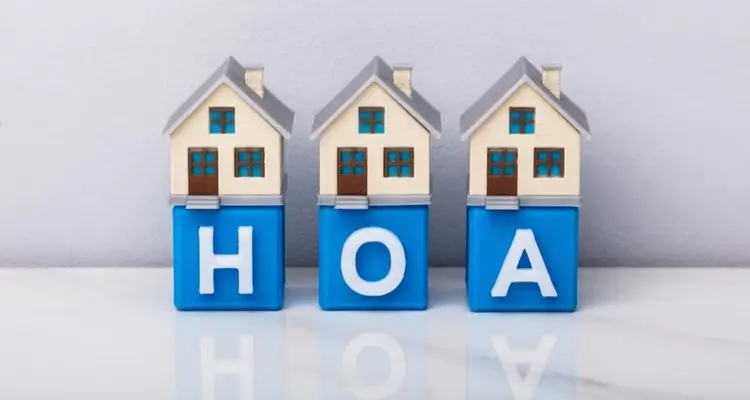
If you want to buy a home but you don’t have 20% down or perfect credit. No worries.
With a low 580 credit score requirement and just a 3.5% down payment, FHA mortgages are the easiest type of mortgage loan to qualify for.
In this article, we will teach you everything you need to know about FHA home loans.
RATE SEARCH Get Approved for a Home Loan
FHA Loan Infographic
What is an FHA Loan?
FHA stands for the Federal Housing Administration, a Government agency created in 1934 by HUD, the U.S. Department of Housing and Urban Development to increase homeownership in America.
The FHA insures loans offered by private lenders, and does not offer mortgage loans directly. Borrowers pay mortgage insurance (MIP), usually around 0.85 percent of the loan amount annually.
In the event a borrower defaults on an FHA-insured loan the lender will be reimbursed by HUD thus reducing their risk allowing them to loosen their requirements.
FHA Credit Score Requirements
Borrowers with a credit score between 500-579 required a minimum down payment of 10%. However, it is not likely mortgage lenders will approve you as a subprime borrower with a score below 580.
If a borrower has a 580 credit score the minimum down payment is 3.5%.
If your credit score is below 580, we highly recommend that you improve your credit score before applying.
Use our FHA loan calculator to see how much you qualify for
FHA Loan Requirements
- 500-579 Credit score – 10% down payment
- 580+ Credit score – 3.5% down payment
- 43% maximum DTI ratio
- Mortgage insurance (MIP) is required
- Two years of employment history
- An appraisal must be done by an FHA-approved appraiser
- 2 year waiting period after a bankruptcy
- Steady employment and be able to prove income with recent tax returns, W2’s, and paycheck stubs
- Non-occupying co-borrowers allowed
- At least 18 years of age
- Student loan payments are factored into debt-to-income ratio
View more information in the HUD Handbook HUD 4155.1 here.
First-time Homebuyers
First-time home buyers love FHA loans because of the low credit and down payment requirements.
In 2018 approximately 46% of first-time buyers used an FHA loan to buy their first home.
But since they are only for owner-occupied residence, you cannot have two FHA loans open unless you must move for work or your family outgrows your current home.
Get Pre-Approved for a Mortgage Today
First-Time Homebuyer Down Payment Assistance
FHA-insured mortgages allow you to use homebuyer programs.
If you are a first-time homebuyer you may qualify for downpayment assistance or Government grants.
You can search for your available state Government programs on the HUD website.
For local county and city down payment assistance programs check out their websites for more information.
First-time homebuyers with bad credit
Since many first-time buyers have poor credit and don’t have a large down payment, FHA loans make a lot of sense. Having a poor credit history means you will have a higher interest rate and your monthly payments will be higher as well.
For borrowers with scores in the 500-579 range, you should work on improving your credit scores before applying for a mortgage.
Read our article on how to improve your credit scores in 30 days.
Low-Income Buyers
These loans are good for low to median income first time home buyers. FHA allows lenders more flexibility on debt-to-income ratios than traditional mortgages.
Sometimes lenders can approve up to a 50% DTI ratio.
Many low-income borrowers can get approved for a home loan through the FHA.
Who should get an FHA Mortgage?
FHA Loans are great for anyone that’s looking to purchase a home because they come with competitive mortgage rates and are easier to qualify for than traditional loans.
Candidates for FHA Loans
- Borrowers will a low credit rating
- Anyone that cannot afford a large down payment
- If you are receiving your down payment as a gift
- If your debt-to-income ratio is high
- First-time homebuyers
Down Payment Gifts
Another great benefit for FHA borrowers is that the down payment can be a gift.
The down payment of 3.5% can be a gift, as long as the person gifting the down payment meets FHA guidelines.
A relative, charity, your employer or workers’ union, even a friend can gift you the funds for your down payment as long as the friend has invested interest in the borrower.
This is a way that an FHA loan can provide the borrower 100% financing with no down payment out of pocket. You will need to fill out a gift letter for the mortgage down payment.
FHA Closing Costs
Like any home loan, FHA-insured mortgages will have closing costs.
These fees include origination fees, home appraisals, title insurance, and more. Typically, FHA closing costs amount to 2%-5% of the purchase price depending on the lender you use.
You should always compare loan offers from multiple FHA lenders to make sure you’re getting the most competitive rates and lowest fees.
Shop and Compare Loan Offers and Rates
FHA Loan Limits
The loan limits were recently increased for 2018 from $275,665 to $294,515 for low-cost areas.
This is the maximum loan limits for FHA loans in 60% of the U.S. The limits go up to $679,650 is high-cost areas, such as Los Angeles and San Francisco.
| # of Units | Low-Cost area loan limit | High-Cost area loan limit |
|---|---|---|
| 1 Unit | $294,515 | $679,650 |
| 2 Units | $352,950 | $814,500 |
| 3 Units | $426,625 | $984,525 |
| 4 Units | $530,150 | $1,223,475 |
Loan Limits for Guam, Hawaii, Alaska, U.S. Virgin Islands
| # of Units | Loan limit | |
|---|---|---|
| 1 Unit | $721,050 | |
| 2 Units | $923,050 | |
| 3 Units | $1,115,800 | |
| 4 Units | $1,386,650 | |
Mortgage Insurance Premium
FHA loans require private mortgage insurance, referred to as MIP (mortgage insurance premium) or PMI (private mortgage insurance).
There are two types of mortgage insurance you will pay. An annual MIP and an up-front mortgage insurance premium of 1.75%. MIP cannot be rolled into the loan because the maximum loan-to-value ratio is 96.5%
The annual mortgage insurance premiums can be canceled if you acquired your loan after December 31st, 2000, and before July 3rd, 2013 and have an LTV balance of 78% or less, and you meet the requirements in mortgagee letter 2000-46.
HUD changed the rules about canceling FHA mortgage insurance.
If you got your mortgage after July 3rd, 2013 the FHA will not let you cancel mortgage insurance if you put less than 10% down.
However, if you have paid down the balance to under 78% LTV and original put a 10% or higher down payment, you can cancel PMI. You can refinance out of an FHA loan into a conventional loan to remove PMI.
FHA Mortgage Insurance Chart
Comparing FHA vs Conventional Loans
There are many differences in FHA vs Conventional loans. For one, FHA requires a low down payment of just 3.5% with a 580 credit score.
You can get approved for an FHA mortgage loan with a 500-579 credit score with 10% down. However, it is very difficult to process a loan application with a credit score in this range.
If you have at least a 580 credit score, it is easier to qualify for an FHA mortgage.
Advantages
- 580 FICO score requirement
- The FHA mortgage rate is lower compared to a conventional mortgage
- 3.5 percent down payment
- Down payment can be a gift from a friend or family member
- Higher allowed debt-to-income ratios
- Easier to qualify for
- Can reduce your monthly payments with an FHA refinance
- They are assumable
- No prepayment penalty
- Sellers can pay up to 6% of the closing costs
- Non-occupying co-borrowers and co-signers allowed
- Wide variety of FHA Lenders to choose from
Disadvantages
- Lower loan limits
- Homes that need renovations do not qualify
- Mortgage insurance is required regardless of down payment
- PMI costs are higher
- Upfront PMI is required
- More required paperwork
Conventional vs FHA loan Comparison Chart
FHA Property Standards
- Single-family home and 2-4 unit properties
- Certain manufactured and mobile homes through the HUD Manufactured Housing Program
- FHA approved condos and town homes
30 year, 15 year fixed-rate or Adjustable-rate mortgage loans
An FHA loan can take various forms. It may be a fixed-rate mortgage or a 15 year fixed rate or 30 year fixed rate, adjustable rate mortgages are also available.
FHA 203(k) Loans
If you would like to purchase a home with an FHA loan and get additional money to make repairs or renovations. Now you can with the FHA 203k loan program.
This renovation loan will allow you to purchase a property and get up to $35,000 additional cash to make renovations or repairs.
Because 203k rehab loans provide more cash than the purchase price, they view it as a risker type of loan for lenders.
Because of this, the minimum credit score is 640. However, all other loan requirements are very similar to a standard FHA(b) loan.
You should speak to a 203k lender to get more details. Click here for more 203k loan details from HUD.
FHA Streamline Refinance
If you have an FHA loan you may be eligible to refinance your mortgage under the FHA streamline program.
If it’s been at least 210 days since you closed on your mortgage and rates have improved, you can apply for an FHA streamline refinance to quickly get a lower rate and lower monthly payments with a streamline refinance program.
The great thing about these refinances is that they do not require a credit check or income verification.
This allows everyone to refinance their FHA loan to get a lower interest rate and lower monthly mortgage payment.
FHA-Approved Lenders
FHA loans are offered by private mortgage companies the FHA approves.
Most mortgage companies are FHA-approved lenders and you should not have a hard time finding one.
If you have a poor credit rating, then you should find a subprime FHA lender to work with.
FAQ
Who can qualify for an FHA loan?
FHA loans are popular because they are one of the easiest types of home loans to qualify for. If you have a credit score of 500-579 you may qualify with 10% down. If you have at least a 580 credit score the required down payment is 3.5%.
How long does it take to close on a house with an FHA loan?
The average time to close is 48 days. However, the time to close depends on several factors. You can speed up the process by getting all of your documents to your loan officer as quickly as possible and responding to any requests in a timely manner.
Are FHA loans only for first-time homebuyers?
No. Anyone can qualify for an FHA mortgage regardless if they’re a first-time buyer, or not. You cannot get a second FHA loan at the same time unless you met certain conditions.
In Conclusion…
FHA loans offer a wealth of benefits for many home buyers. They are easier to qualify for, offer lower interest rates and lower loan fees.
They’re available for many people who would not otherwise qualify for a home loan due to poor credit or sometimes, no credit history at all.
Are you considering using an FHA loan to buy a home? Fill out the form on our home page to compare multiple home loan offers and get a free no-hassle consultation with lenders in our network. Home ownership may be well within your reach!
The Lenders Network has the largest network of mortgage lenders that specialize in home loans for borrowers with all types of credit scores. We will match you will the best lender based on your specific situation.



